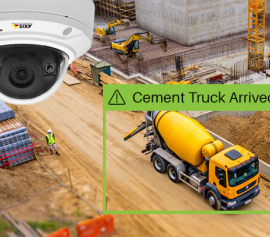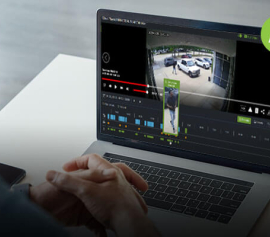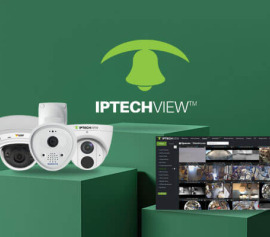How to Obtain Video Surveillance from a Business
Nowadays, companies of all kinds have conventional security measures, including video surveillance. In circumstances including accidents, crimes, or conflicts, this video might be quite valuable proof. Getting these records, though, is not always simple.
Legal complexities and specific procedures govern the process of obtaining video surveillance footage. This guide will equip you with the essential knowledge to navigate this terrain effectively.
(Caution: This is not legal advice.)
Understanding Your Rights and the Business’s Obligations
Before you ask for video footage, it's important to know your rights and what the business is allowed to do.
1. Legal Ownership of the Footage
Usually, the company owning the camera system also owns the captured footage. With some exclusions under particular legal situations, they thereby have the right to determine whether or not to distribute it.
2. Privacy Laws
Although video surveillance is usually allowed in public spaces, privacy regulations guard people against being photographed in facilities like bathrooms or dressing rooms where they have a legitimate expectation of privacy. These rules can vary based on where you live. Hence, it's important to know the particular ones in your area.
3. Data Protection Regulations
Strict data protection rules control how companies may handle personal information, including video recordings, in many countries.
For example, the GDPR in Europe mandates companies, where needed, to anonymize or redact footage to safeguard people's privacy. Getting video footage could so call for more technological and legal issues.
All of this means that businesses can refuse your request to see any surveillance footage.
Steps to Request Video Surveillance Footage
If you believe you have a legitimate reason to request video surveillance footage, here’s how you should proceed:
Identify the Specific Incident
Specify exactly the incident or time frame for which you require footage. If your request is too ambiguous, businesses are less inclined to assist, so precisely explain the date, time, and location of the event you would be interested in.
Determine the Correct Point of Contact
Identify the right person to contact. This could be a manager, security officer, or someone in the legal department. Knowing who handles video surveillance will help you get a quicker response to your request.
Make a Formal Request in Writing
Put your request in writing. This could be an email or a formal letter. Your request should include:
- Specific details: The exact date, time, and location of the incident.
- Purpose: Clearly explain why you need the footage.
- Legal basis: If applicable, state any legal grounds for your request, such as being involved in the incident or possessing a subpoena.
- Contact information: Provide your name, phone number, and email address for follow-up.
Cite Relevant Legal Grounds
Clearly identify the legal foundation for your request if it relates to a legal problem, such as a criminal investigation or personal injury claim.
For an inquiry, law enforcement officials or attorneys might, for instance, have the power to seek or subpoena video.
Be Prepared to Provide Identification
Companies could ask you to confirm your identification before offering security footage. Prepare to present other documentation or identification proving your identity.
What to Do If Your Request Is Denied?
Businesses aren't always required to share surveillance footage. They might refuse if they think it could violate someone's privacy or cause them legal trouble. If your request is denied, here's what you can do:
Understand the Reason for Denial
If your request is denied, ask the business to explain their reasons. Understanding their perspective can help you decide on your next steps.
Seek Legal Advice
See an attorney if you think the video is absolutely vital for a legal problem. They can counsel you on your legal rights, possible next actions, and whether you need a court order or subpoena.
Consider a Court Order
Sometimes getting the footage would call for a court order. This entails formally requesting something from the court, outlining why the film is so important for your case, and how it bolsters your assertions.
Important Considerations
Surveillance footage has a short lifespan. Most businesses only keep it for a few days or weeks, depending on their system's storage. Don't wait. Act fast to get the footage you need before it's gone.
Businesses can't just erase footage. If you ask for it and they delete it, they could face legal trouble for destroying evidence. Courts can punish them, including making the jury think the missing footage would have hurt their case.
Final Words
Know your rights, raise your chances, be clear about what you want, and be ready to follow up if necessary. See a lawyer if you are unsure about what to do. They can assist you in determining the best approach forward.






